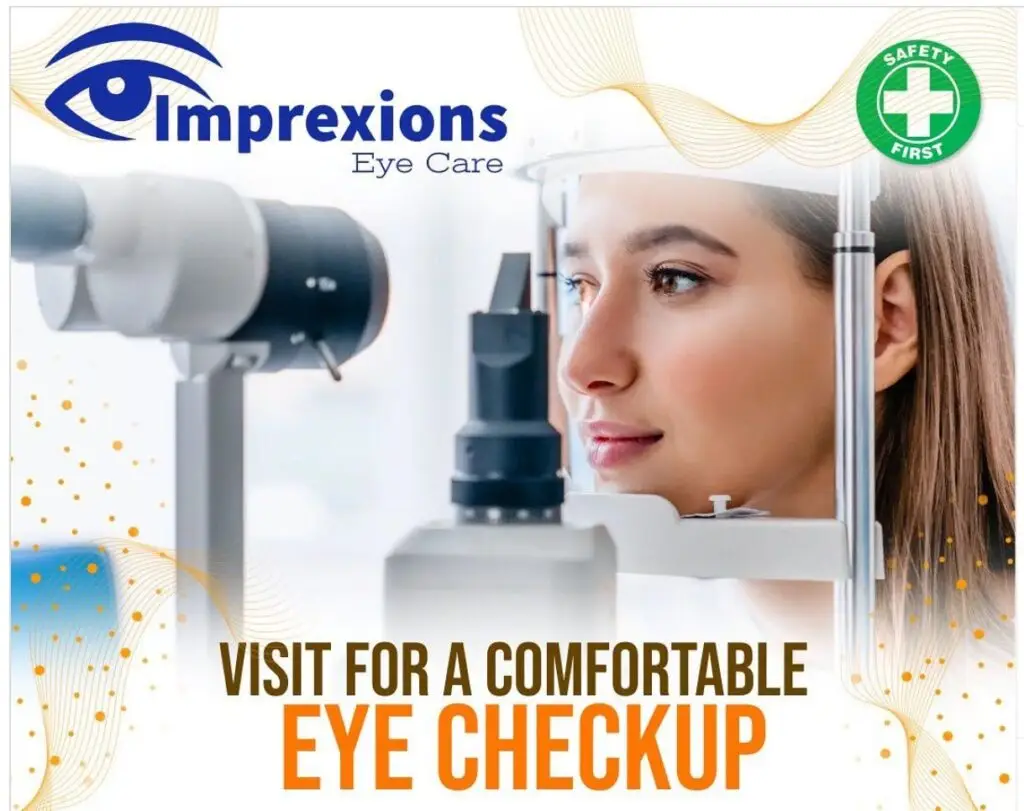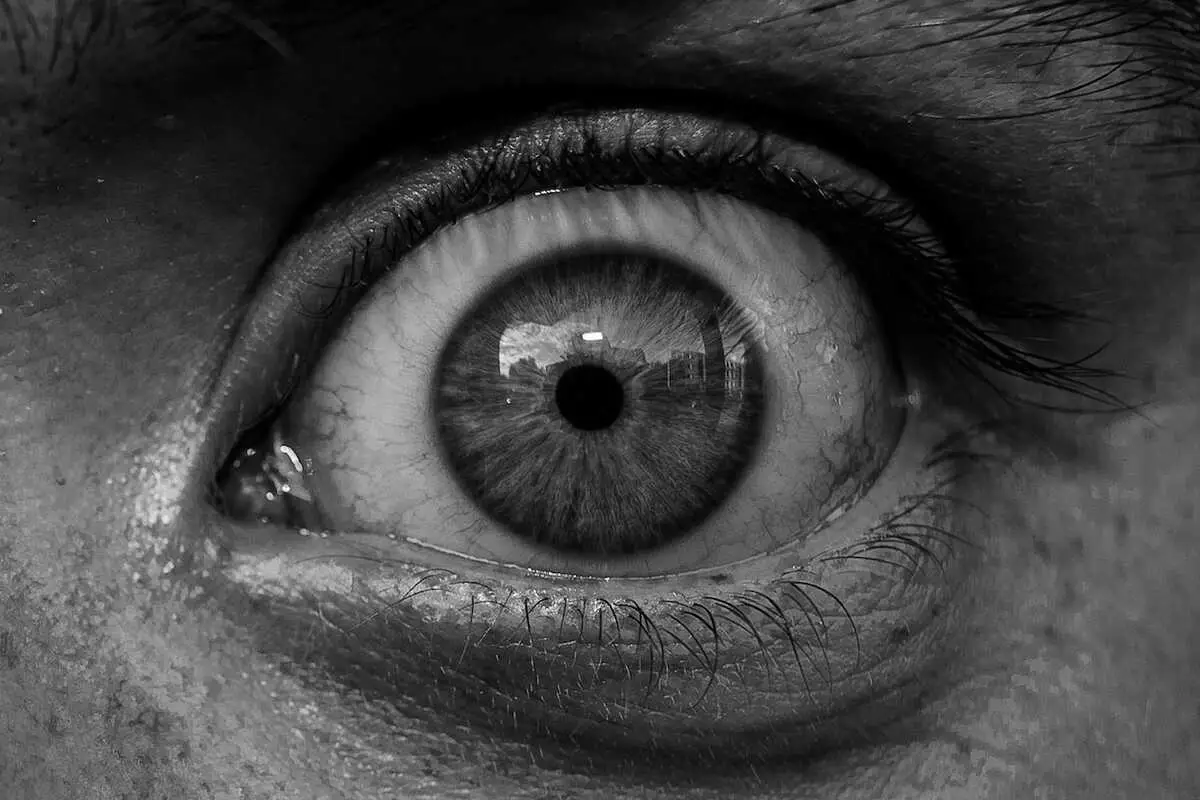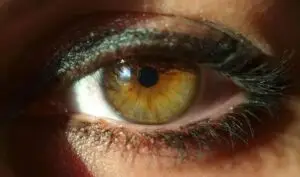Looking for the best blurry vision treatment? Imprexions Eye Clinic has some helpful tips in this blog piece.

People of all ages are susceptible to the common condition known as blurry vision. Numerous things, including aging-related changes, the strain on the eyes, or underlying medical conditions, can contribute to it.
Although certain instances of blurry vision may only last a short time and be safe, other cases might need medical attention. To help you improve your vision and avoid further issues, we will go over the signs and symptoms of blurry vision in this article.
Before we dive in, feel free to talk to us about all your vision problems, vision loss, and other eye conditions. We offer the best eye care services!
Table of Contents
- What is a Blurry Vision?
- Causes of blurry vision
- Symptoms of blurry vision
- Blurry Vision Treatment
- Conclusion
What is a Blurry Vision?
When you have blurry vision, objects appear hazy, fuzzy, or completely out of focus. It can happen to either or both eyes, and it can happen at any time of the day. A sign that underlies health issues or a sign that you require glasses or contact lenses is blurry vision.
Causes of blurry vision
There are a number of reasons why vision is hazy, including:
Refractive errors: While the structure of your eye does not correctly bend light, this results in the appearance of blurry objects. It covers things like astigmatism, farsightedness, and nearsightedness.
Age-related changes: Our eyes change with time, which may impair our vision. This includes macular degeneration, cataracts, and presbyopia. You may strain the eyes and experience blurry vision by using digital devices for an excessive amount of time, reading in low light, or working up close without taking breaks.
Medical conditions: Numerous medical conditions, such as diabetes, multiple sclerosis, cataracts, and high blood pressure, can result in blurry vision.
Medications: Antihistamines, antidepressants, as well as steroids all have the side effect of blurring the vision.
Symptoms of blurry vision
Depending on the underlying cause, the signs of blurry vision may change. A few typical signs are:
- Things seem blurry or out of focus.
- Inability to read or recognize faces
- Headaches or eye strain
- Tiredness or discomfort in the eyes
- responsiveness to light
- Halos or double vision around lights
Also read: The Cost of Eye Test in Ghana: How Much Does it Really Cost?
Blurry Vision Treatment
The underlying cause of blurry vision will determine the course of treatment. The following are some treatments and suggestions for vision improvement:
Corrective lenses: If you happen to have a refractive error, contact lenses or glasses may help you see better.
Eye drops: Lubricating eye drops or artificial tears are able to relieve symptoms if your blurry vision is being caused by dry eyes.
Rest your eyes: Taking regular breaks from digital devices or close-up work will relieve symptoms if your blurry vision is due to eye strain.
Change your surroundings: You can lessen eye fatigue and enhance your vision by changing the lighting or positioning of your PC or laptop screen, books, or work area.
Treat underpinning medical conditions: If a medical condition is the source of your blurry vision, treating that condition may help you see clearly again.
Surgery: To treat vision issues like cataracts or abnormalities of the cornea, surgery may occasionally be necessary.
FAQs About Blurry Vision Treatment
Can eye exercises improve blurry vision?
Exercises for the eyes have not been shown to improve refractive errors or other root causes of blurry vision, though they may help with eye muscle strength and coordination.
Can a healthy diet improve blurry vision?
A diet high in vitamins A, C, and E and omega-3 fatty acids may support eye health maintenance and lower the risk of aging-related vision issues.
How can I prevent blurry vision?
You can avoid blurry vision by having regular eye exams, eating a nutritious meal, wearing glasses or sunglasses when necessary, taking regular breaks while using your computer or other digital devices, quitting smoking, and a number of other things.
Is blurry vision always a sign of a serious condition?
No, not always. In addition to being a temporary side effect associated with certain medications, or fatigue, which can be a sign of a serious condition. However, in order to completely rule out any potentially serious underlying conditions, it is always crucial to receive an accurate assessment from an eye doctor.
Conclusion
In conclusion, a symptom that can be both frustrating and unsettling, the blurry vision has a wide range of potential causes. The good news is that there are a variety of efficient treatments available, from glasses with prescriptions or contact lenses to drugs or surgery.
Regular eye exams, leading an active life, and safeguarding your eyes when necessary are all preventative measures that can help stop blurry vision before it even starts. Need professional help for an effective blurry vision treatment? Talk to our eye specialists about all your vision problems.





